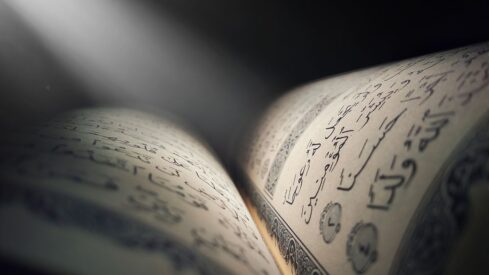A good number of the Prophet’s hadiths promises huge rewards for seemingly small acts of worship. For example, in one hadith the Prophet (peace and blessings be upon him) tells us that reciting surat Al-Ikhlas is equal to reciting one third of the Qur’an, that is, you can earn the reward of reciting the whole Qur’an in just 5 minutes.
Amazing, is not it?!
Some people think that these “offers” are too good to be true. They are skeptic about the authenticity of these hadiths and believe that such “disproportion” of reward to acts cannot be stated by the Prophet (peace and blessings be upon him).
It is true that some reports about the advantages of certain acts is discredited by hadith scholars as unauthentic hadiths, yet many other hadiths are authentic. The above hadith about surat Al-Ikhlas is reported by Al-Bukhari.
So, how to explain such highly-rewarding “special offers”?
One way to answer this question is to reflect on the characteristics of people who are keen on seizing these opportunities; such qualities that prompt them to take seriously these chances:
Unshakeable Trust
These hasant hunters have great trust in what Allah and the Prophet say and promise. The amount of reward granted for some small deeds may appear to be disproportionately huge, but once the source of these grants is verified; when it is established that the Prophet has indeed made those statements; that is enough for true believers to dispel any doubts and remove any skepticism.
Such trust reveals a high level of faith and belief in Allah and His Prophet. Besides, this trust is not a mere claim. It is proved by action; by enthusiasm to take advantage of those special offers constantly.
Good hope in Allah
Another relevant quality is that these believers think well of Allah (Husn Az-Zan billah) which is one of the great traits in Islam.
It is interesting that in one hadith, the Prophet connects this trait with the practice of remembering Allah (dhikr), which in turn, makes a great portion of the “special offers.” The Prophet reports that Allah says:
“Allah says, ‘I am as my servant expects Me to be, and I am with him when he remembers me. If he thinks of Me, I think of him. If he mentions Me in company, I mention him in an even better company.
When he comes closer to Me by a handspan, I come closer to him an arm’s length. If he draws closer to Me by an arm’s length, I draw closer by a distance of two outstretched arms nearer to him. If my servant comes to Me walking, I go to him running.” (Al-Bukhari)
Full of hope in Allah’s grace and aspiring to enjoy His promised prizes, devoted believers spend their time shopping for these offers and maximizing their profits.
A Special Relation with Allah
What kind of life style these smart believers have?
Let’s imagine how they start their day:
At the early hours of dawn, when the rays of sun have not illuminated the roads yet, these believers wake up, overcoming the desire to sleep, head to Masjid to pray Fajr and get the reward of a whole-night vigil prayer[1].
They stay after Fajr in the Masjid for some time remembering Allah until the Duha time is due and then they will pray Duha to get a double reward: first, the reward of a perfect Hajj and `Umrah[2] and second, the reward of giving a charity on behalf of each and every joint in their bodies[3].
Then, they are busy repeating the morning different supplications and words of dhikr, each of which has its own meanings, inspirations and reward.
What a beginning! How do you think a morning like this will affect the believer’s behavior and attitudes during the whole day?
Doing Good to Everyone
The special offers are not only about maintaining a good relation with Allah. You can earn many hasanat by treating Human beings and even animals well.
A Hasant seeker knows that meeting people with a friendly, smiling face is a charity[4]; that a man who never did any good deed will enter Paradise for removing a thorny branch from the road[5], and that a prostitute was forgiven because she provided water for a thirsty dog[6].
With such positive spirit these dedicated believers live, spreading peace and goodness on earth and working diligently to make the world a better place.
Hereafter is the First Priority
In the hustle and bustle of life it is very easy to get distracted from the Hereafter and to forget preparing for it.
Work, study, kids, business, TV shows, money, entertainment and many other things have captivated the hearts and minds of a lot of people and kept their eyes and attention away from the ultimate end.
Smart believers, on the other hand, are always alert to these traps. They are well-aware of the reality of this dunya: a mere passage to the Hereafter; a test whose results determines one’s destination on the Day of Judgment.
Therefore, they prefer the Hereafter to this world. They are ready to sacrifice some conveniences of the dunia (for example, driving in freezing weather to pray Fajr at the Masjid to get the reward mentioned in the previous section) to secure themselves in the Hereafter.
Think of how much effort and concentration we dedicate to our private business to see the difference in priorities. Compare our attitude to these special offers with our excessive interest in worldly offers, credit card points, bank accounts, market sales and promotions.
In one hadith the Prophet tells us that praying twelve nafl (optional) rak`ahs daily gains you a house in Al-Jannah.[7] Think about it: do you take this offer seriously? Will you show the same interest if the offer was about getting a house in this Dunya, say in the best neighborhood in your country, in return for a 30-minute work?
Indeed those small deeds betray the magnitude of our Iman and devotion and perhaps this is why their reward is such huge.
Immune from Ghaflah (heedlessness)
The above focus on the hereafter and wise priority-setting is the fruit of immunity from ghaflah or heedlessness.
In many verses, the Qur’an warns against this disastrous malady as one of the reasons of human’s loss (Al-A`raf 7:179, An-Nahl 16: 108, Al-Mu’minun 23:54-56)
Being safe from heedlessness and staying focused on and alert to what brings you closer to Allah is not an easy task, albeit not impossible too.
To appreciate this quality, let’s refer to the example mentioned at the beginning of this article: many of us know that reading Surat Al-Ikhlas gains its reader a reward equal to reciting one third of the Qur’an. But how many of us show enough interest in getting this high reward?
It is Ghaflah that hold us back from appreciating and gaining this special offer.
In conclusion, it is important to review our attitude towards these generous offers and take them seriously. Life is so short and none of us is guaranteed to end up in Jannah.
One point to mention here: The above reflections are just an attempt to understand the secret behind the promised great rewards. However, it is better to busy oneself with seizing these generous offers and accumulating as many of hasanat as possible rather than spending much time thinking why such huge hasant are assigned to theses deeds.
That does not mean reflecting on this question is blameworthy. The point is that it should not distract us from benefiting from the blessings that Allah granted us in the form of highly rewarding small acts.
On the Day of Judgment, one hasanah makes a difference. Ultimate success or loss may depend on one of these small acts.
By Muhammad Fathi


















